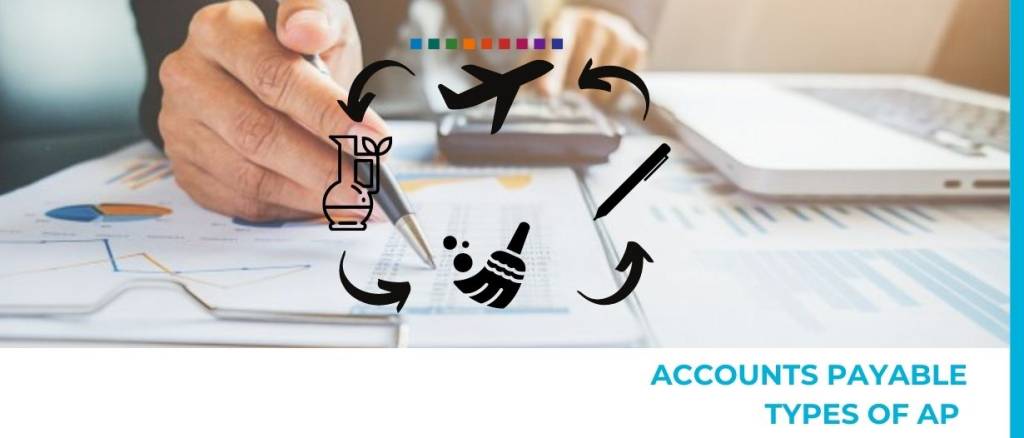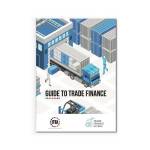Accounts Payable: What you need to know

Content
Accounts Payable: What you need to know
Accounts payable is one of the most common expense terms used in business accounting. The term accounts payable is defined as the amount of money a business owes its suppliers for goods and services the business has purchased on credit. Accounts payable are placed under current liabilities in a business’s balance sheet. This is because accounts payable are a short-term liability that usually needs to be settled within a short time, usually within a year or a much shorter period.

The difference between payables and account receivables.
A distinction should be made between accounts payable and accounts receivables. Accounts receivables refers to the amount of money owed to the business by customers for goods and services already sold to them on credit. Simply put, accounts receivables are the business’ outstanding invoices. Accounts receivables are treated as current assets in the balance sheet because they provide value to the business in the form of a cash payment that is due in the near future.
It is important to avoid the confusion that arises from these two types of accounts. The way these two types of accounts are recorded is similar and the key feature that differentiates them is that accounts payable is a liability while accounts receivables is an asset.
For a small company, or even a singular entrepreneur, it is perfectly acceptable to keep a simple track of accounts receivable to be familiar with your pending cash flow. This will also allow you to keep track of when you should expect these accounts to be settled.
Further use can improve the overall financial health of the company by transforming accounts receivable into loan securities and collateral. This will allow the company to quickly increase liquidity based on funds that are yet to be received.
This utilization has some issues because mistakes in ascertaining the collectability of the invoices delivered may damage the rating of the company without other solutions.
Finally, accounts receivable may show managers, shareholders, and other stakeholders some indications about the financial health of the company and business, as well as the state of the market and clients. For investors, the resolution of accounts receivable is an important way for them to ascertain the security of their investment.
How can TFG help?
The TFG receivables finance team works with the key decision-makers at over 270 banks, funds and alternative lenders globally, assisting companies in accessing receivables finance facilities.
Our team are here to help you scale up to take advantage of both your domestic and international customers. We have product specialists based around the world, from automotive and vehicles, to media and data.
Often the financing solution that our clients may require can be complicated, and it’s our job is to help you find the appropriate receivables solutions for your business.
Read more about Trade Finance Global and our team.
Want to learn more about accounts payable finance?
You’ve come to the right place! Here in our accounts payable hub, we’ve put together a library of content around receivables finance. Relax, and tuck into our latest editorial insights and spotlight interviews from the TFG, watch videos and tune in to our Trade Finance Talks podcast to hear what’s hot in the world of AP finance right below.
Types of Accounts Payable
Accounts payable are considered as current liabilities or short-term liabilities because they usually need to be paid out in a short time. There are various types or examples of accounts payable which are discussed below.

Office supplies
Many businesses purchase stationary and office supplies in bulk and on credit. These businesses will usually have their orders for office supplies automatically set up based on the demand and the use of these supplies. As a result, therefore, these businesses will usually have pending payments to be made to their suppliers for the stationary and office supplies already delivered to them.
Travel expenses
Large businesses that require their staff to travel frequently may not have the luxury or option of paying for these travel expenses upfront or in cash. These businesses will usually have a department responsible for making advance reservations for airline travel, car rentals, and hotel accommodation. Once the business travel is completed, the business will be left with outstanding invoices to be settled or paid out to the different travel companies that provided the services. These outstanding invoices are treated as accounts payable since they are liabilities which the company has to settle for services already consumed by the business.
Cleaning services
Many businesses will hire or outsource an external company to provide cleaning and sanitation services for their premises. These external companies are usually paid periodically after they have provided their services to the business. This leaves the business with an outstanding liability to be settled after a short time. The business will usually make regular payments, weekly or monthly, to the external company for their services. These outstanding bills to be paid to the external cleaning companies are usually handled as accounts payable in the business’s accounting books.
Raw materials
Businesses that carry out manufacturing usually need raw materials and other related supplies in order for them to produce their products. These raw materials are usually purchased in large quantities and therefore cannot be paid for in cash. Businesses will purchase raw materials on credit and on favourable payment terms like 30, 60 or 90 days. Until the business makes payment for materials supplied, these raw materials and related supplies will be treated as accounts payable.
Leasing costs
Some businesses are heavily reliant on equipment and machinery which is expensive to purchase upfront. In such cases, some businesses will opt to lease out such equipment and machinery. Leasing is considered as a cheaper capital expenditure option. Payments that are due to be paid to a lessor are therefore treated as accounts payable since they are liabilities to be settled at a later date.
There are many other types of accounts payable that are specific to different businesses and industries. Other examples of accounts payables include taxes, loans and wages.
Accounts payable process
The accounts payable process is usually considered under the expenditure and purchasing cycle. The process is made up of a range of key accounting activities that are needed to complete a purchase i.e. from the time a customer order is received to the time a product or service is delivered to a customer. There are three important documents involved in the accounts payable process. These are the purchase order (PO), receiving report, and seller’s invoice.
Simply explained, the process starts when a customer sends a purchase order to the business. The purchase order will state the required goods or service, the quantity and the prices. Once the business has received the purchase order, it will prepare the services or goods ready for shipment to the customer. The customer, after receiving the goods or services will prepare a receiving report which documents the shipment and states any damages or discrepancies in the goods received by the customer. The business will then send its invoice and request the customer to make payment for the goods or services delivered. The relevant accounting or accounts payable department of the customer will then begin the invoice management process which involves paying the invoice amount to the supplier.
Every business needs to set up a well administered accounts payable procedure to prevent errors or detect them when they occur. These procedures can also be important in auditing as they will provide a trail that be used to trace a discrepancies or errors.
The accounts payables procedure varies from business to business as well across different industries, but they do follow a similar pattern which is as follows

A. Three-way match
Firstly, and upon receiving a seller’s invoice, the accounts department will carry out a three-way match. This is done by comparing the details of the purchase order against the receiving report and seller’s invoice details. This is meant to ensure that the details in all three documents are consistent.
B. Approval of invoice
Secondly, once the accounts department has verified that indeed the goods and services were ordered and received by the business, the seller’s invoice will be approved for payment.
C. Discrepancies
Thirdly, if there are any discrepancies in the details contained in the purchase order, receiving report and seller’s invoice, the accounts department will attempt to trace the source of the discrepancy. An example of a discrepancy could be in the quantity of goods ordered and that received.
D. Processing Payment
Finally, once the invoice has been approved for payment or any discrepancies have been resolved, the accounts department responsible for processing payment will process the payment to the seller through the various payment methods used by the business. The payment could be made by way of cheque or electronic funds transfer.
Challenges in the Accounts Payable Process
Accounts payable is a key element in a business’s balance sheet. Managing accounts payable is important in controlling a business’s cash flow. A business that has a good and streamlined accounts payable process saves a lot of money by eliminating or minimising late payment charges, penalties and interest charges. The business will also save money by taking advantage of early and prompt payment discounts.

A well-managed accounts payable process is also important for a business because it helps the business maintain a good relationship with its suppliers.
Every business process has its challenges, and the accounts payable process has not been without its challenges. Some of the challenges that affect the accounts payable process are discussed below:-
Missing orders
A business needs to keep track of the purchase orders it has issued to its suppliers. Missing purchase orders will usually lead to issuance of duplicate orders and create room for unauthorised purchases. Failure to keep a record or track of purchase orders makes it difficult of businesses to keep track of the goods and services ordered as well as the prices agreed upon with the suppliers.
Manual data entry
Manual date entry in the accounts payable process increases the chances of making errors and mistakes. The accounts payable process involves a lot of data entry which includes entering details of the seller’s invoice, getting invoice approved and processing payments. Any errors in this process can lead to incorrect calculations and payments which can have a negative impact of the business’s cash flow. Manual data entry wastes time particularly when it comes to tracing and rectifying errors.
Slow and inefficient processing
Manual data entry and processing of the accounts payable process is time consuming. Having a slow and bureaucratic way processing, approving and settling invoices may lead to the business losing money by failing to take advantage of early-bird discounts. Inefficient accounts payable process can also lead to unauthorised purchases which in effect lose the business much needed finances.
Manual records
Many businesses maintain manual records in the accounting processes. The typical purchase transaction produces two documents i.e. the purchase order and the seller’s invoice. Every and every purchase increases the accounts payable records to be kept and maintained which makes it difficult to track documents. These manual records are also susceptible to loss or damage for example in the event of a fire or floods.
Managing invoices
A business that has many transactions will find it easy to lose track of seller’s invoices and their due dates. Not being able to trace invoices and promptly settle time usually damages the business’s relationship with its suppliers. A business can incur unnecessary costs once it loses the supplier’s trust because that supplier might not accord the business flexible payment terms anymore.
These are some of the challenges business face when dealing with accounts payable. Some of these challenges can be solved or eliminated by putting in place some measures which are discussed next.
Solutions to Challenges in the AP Process

There are certain measures a business can take to streamline and make better its accounts payable process. These include:
Supplier management
A business can make its accounts payable process seamless by identifying and choosing good suppliers. Good suppliers who are efficient in how quickly they accept orders and those who offer flexible payment terms can help a business streamline its accounts payable process and increase its cash flow.
The business can also regularly update its suppliers on the status of their invoices and payments. This improves supplier communication and helps maintain a good relationship between the business and the suppliers.
Automation
Automation provides a solution to most of the challenges in the accounts payable process. Automation of the accounts payable process greatly improvs its accuracy, speed and quality. Automation deals with the problem of lost invoices or double payments which makes a business lose money and affects its cash flow.
Automation also deals with the problem of manual data entry and records. Errors associated with manual data entry are eliminated with automation. Most accounting software provides for digital data entry such as scanning of invoices and uploading them to the software. Automation also comes with automated payment reminders which ensure that a business will make pay its suppliers on time and avoid late payment charges and penalties.
Automating the accounts payable process helps businesses streamline their workflow which includes issuance of purchase orders, getting their approvals, reviewing supplier invoices, and processing payments. Automation makes approval of purchaser orders and supplier invoices faster since it can be by a few clicks instead of doing it manually which could take hours or days. Automation simplifies complicated and bureaucratic internal processes. In essence therefore, automation helps a business improve its accounts department’s productivity.
Automation helps a business keep up with its purchase orders and supplier invoices and payment of suppliers on time thus avoiding late fees and penalties.
Digitsing record keeping
Similar to automation is digitising of record keeping which can help streamline the accounts payable process. Digitising of record keeping can be achieved by using online accounting software to maintain records of all transactions in a digital format. Keeping of digital records also helps a business save on costs associated with storage of manual records. It also saves costs by saving the time involved in storing, searching, and retrieving of documents such as purchase orders and invoices.
Prioritising Invoices
Prioritising what supplier invoices to be paid first can help streamline the accounts payable process. This can be done by choosing which supplier to pay first instead of paying on a first-come basis. Every business should take advantage of suppliers who offer early payment discounts and ensure those are paid first. This ensures the business owes less and it improves the business’s general cash flow. A business should also make it a priority to pay suppliers who have strict payment terms and those who charge penalties or interest for late payment. When these are paid on time the business will avoid paying more.
Conclusions
The importance of accounts payable in any business’s balance sheet cannot be gainsaid. Good management of the accounts payable process is important for the smooth running of any business. This is because it allows a business to pay it pending bills and invoices on time thus maintaining a good credit relationship with its suppliers. It is only when a business pays its invoices on time that suppliers will ensure an uninterrupted supply of goods and services to the business thus allowing a smooth flow of business.
By improving the accounts payable process, a business can improve its cash flow and inject much needed working capital in the business. Making payments only when due or properly utilising the credit terms provided by suppliers significantly improves a business’s cash flow.
A business should regularly monitor and manage its accounts payable numbers. An increased accounts payable element in the balance sheet indicates that the business is purchasing more goods and services on credit instead of paying for them on cash. A reduced accounts payable element indicates that a business is settling its invoices and paying its debts faster than it is purchasing goods and services on credit. A business should therefore strike a comfortable balance on how much it purchases goods and services on credit than cash and how quickly it pays it its debts because this balance is very critical in managing the business’s cash flow. Simply stated, a reduced accounts payable element means that the business’s cash balance is also reduced. Conversely, an increased accounts payable element means that the business’s cash balance is also up or increased.
As discussed, the accounts payable process is very important for every business. Therefore, a lot of investment needs to be made in order to ensure that the process is efficient and effective. Automation then becomes cornerstone of this process to ensure that the process is efficient. Automation will reduce the time and cost of processing purchase orders, supplier invoices and payments. It will also help increase efficiency and reduce human errors.
Invoice Finance Podcasts
Get started – talk to our team
If you have an invoice finance enquiry, please use the contact form.
Otherwise, you can reach us on the email addresses below.
Trade Finance Global
- 201 Haverstock Hill
- Second Floor
- London
- NW3 4QG
Telephone: +44 (0)203 865 3705
Our trade finance partners
- Supply Chain and Payables Finance Resources
- All Payables Finance Topics
- Podcasts
- Videos
- Conferences




















